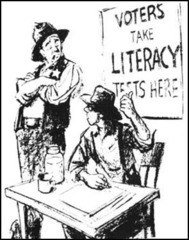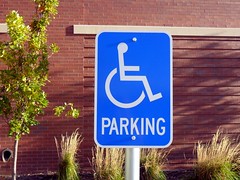| 6216142564 | Civil Rights | The rights of citizens to political and social freedom and equality. |  | 0 |
| 6216153678 | Fourteenth Amendment | A constitutional amendment which defines citizenship and expressly forbids the restriction of rights of citizens. |  | 1 |
| 6216166315 | Equal Protection of the Law | A right guaranteed to all persons. Essentially, the law applies the same to everyone unless otherwise specified, and such specifications cannot be made without reason and cannot violate equality. For example, laws regarding abortion only directly apply to people who can bare children. |  | 2 |
| 6216198060 | Thirteenth Amendment | A constitutional amendment which bans slavery and all involuntary servitude, except in cases as punishment for crimes duly convicted. |  | 3 |
| 6216206110 | Civil Rights Act of 1964 | Under President Lyndon Johnson's Great Society, this act banned segregation by race in public and job discrimination based on race, sex, religion, and national origin. |  | 4 |
| 6216217020 | Suffrage | The right to vote. |  | 5 |
| 6216222064 | Fifteenth Amendment | A constitutional amendment stating that suffrage cannot be "denied or abridged" based on race, color, or previously being in servitude. |  | 6 |
| 6216237644 | Poll Taxes | Taxes necessary to register to vote. These were used by some states, especially southern states, after the ratification of the Fifteenth Amendment to restrict black male suffrage, but were expressly made illegal by the Twenty-fourth Amendment. |  | 7 |
| 6216262627 | White Primaries | Primary elections in some southern states, especially for the Democratic Party, open only to white voters. |  | 8 |
| 6216270087 | Twenty-fourth Amendment | A constitutional amendment which declares poll taxes illegal. |  | 9 |
| 6216274707 | Voting Rights Act of 1965 | An act under the Great Society which attempted to prevent local and state barriers against African-Americans voting. |  | 10 |
| 6216286220 | Equal Rights Amendment | An amendment written in 1923 and attempted again to be passed in the 1970s guaranteeing women equal civil rights. It was never passed. |  | 11 |
| 6216297322 | Americans with Disabilities Act | A 1990 labor law prohibiting "unjustified discrimination based on disability." |  | 12 |
| 6216303969 | Affirmative Action | Policies favoring those who are discriminated against. For example, in Regents of the University of California v. Bakke, Bakke claimed that the affirmative action policy quota for minorities at the college was unfair to him. |  | 13 |
| 6216319876 | Scott v. Sandford | An 1857 Supreme Court case in which a man, Dred Scott, tried to claim freedom on the basis that his master had taken him into free territory. The Court ruled that not only was he still legally in bondage, black people could not be citizens so he had no right to sue in the first place. |  | 14 |
| 6216332030 | Plessy v. Ferguson | An 1896 Supreme Court case in which a man, Plessy, refused to move from the 'whites only" car on a train due to being only 1/16 African-American, but was arrested. The Court ruled that segregation based on race was constitutional as long as facilities were equal. |  | 15 |
| 6216351026 | Brown v. Board of Education | A 1954 Supreme Court case in which the Court ruled that 'separate but equal,' the general policy established by Plessy, was inherently unequal, ending public school segregation. |  | 16 |
| 6216364444 | Hernandez v. Texas | A 1954 Supreme Court case in which a man, Hernandez, was indicted and sentenced for the murder of another man before an all-white jury. Because Mexican-Americans had not served on a jury in the county for 25 years, and their populations were not small enough to warrant this, Hernandez argued that his jury had not been fair. The Court unanimously ruled in his favor, setting the precedent that Mexican-Americans should receive the same protection under the 14th Amendment. |  | 17 |
| 6216406348 | Korematsu v. United States | A 1944 Supreme Court case in which Korematsu, a man of Japanese descent, violated Executive Order 9066 and local statutes by remaining in an area of California deemed unfit for Japanese-Americans to stay in due to the suspected threat of espionage. The Court ruled that the exclusion would not be constitutional during normal times, but that war powers were invoked so the actions were within the government's boundaries. |  | 18 |
| 6216451648 | Reed v. Reed | A 1971 Supreme Court case in which a separated couple's adopted son died, and the father was named in charge of his estate because a state law held that males be given higher preference. The Court ruled that this was a violation of the Equal Protection Clause of the 14th Amendment, and that merit must be used instead. |  | 19 |
| 6216473904 | Craig v. Boren | A 1976 Supreme Court case in which an Oklahoma law prohibited selling a certain type of low-level alcohol beer to males under age 21 and females under age 18. The Court ruled that the law was discriminatory. |  | 20 |
| 6216498963 | Regents of University of California v. Bakke | A 1977 Supreme Court case in which a white man was denied admission to a medical school because they had to fill a quota for minorities, who he claimed he was more qualified than. The Court ruled in favor of Bakke, though it was established that race could be used an an equally weighted criterion., |  | 21 |
| 6216538972 | Probable Cause | The standard needed for police to search cars, homes, etc. and/or seize property. |  | 22 |
| 6216544802 | Exclusionary Rule | A law prohibiting the use of illegally obtained evidence in a criminal trial. |  | 23 |
| 6216551208 | Good Faith Exception | If officers believed in good faith when they seized the evidence, such as acting on a warrant that turns out to be flawed, the evidence may be used. |  | 24 |
| 6216570494 | Establishment Clause | Part of the First Amendment which prohibits Congress from establishing official religion. |  | 25 |
| 6216577667 | Free Exercise Clause | Part of the First Amendment which prohibits Congress from prohibiting the free exercise of religion. |  | 26 |
| 6216590337 | Prior Restraint | The censorship of material by a court because is is libelous or harmful. The ability to do this is very restricted by the First Amendment. |  | 27 |
| 6216611427 | Penumbras | The implied rights of a constitution and meanings of a law. |  | 28 |
| 6216629334 | Griswold v. Connecticut | A 1965 Supreme Court case in which medical professionals were convicted of violating a Connecticut law that prohibited health care professionals from discussing birth control with married patients for the purposes of preventing conception. The Court determined that the right to privacy, while not specifically enumerated in the Constitution, was created by the penumbras of the 1st, 3rd, 4th, and 9th Amendments. |  | 29 |
| 6216663283 | Mapp v. Ohio | A 1961 Supreme Court case in which a woman's home was searched for a criminal, but police officers found obscene materials, for the possession of which she was convicted. The Court ruled that illegally seized evidence cannot be used in a criminal trial. |  | 30 |
| 6216685397 | Procedural Due Process | A legal doctrine requiring officials to follow fair procedures before depriving people of life, liberty, and property. |  | 31 |
| 6216706358 | Substantive Due Process | A right of federal courts to protect fundamental constitutional liberties. |  | 32 |
| 6216718719 | Plea Bargaining | A process where defendants make agreements with plaintiffs to plead guilty or no contest to try and receive a reduced sentence, dropped charges, etc. |  | 33 |
| 6216729281 | Self-incrimination | The act of confessing to a crime. |  | 34 |
| 6216736403 | Writ of Habeas Corpus | A principle stating that prisoners must be told why they have been arrested and are being held in jail and given an opportunity to contact an outside person. The suspension of this is a denied power. |  | 35 |
| 6216750760 | Bill of Attainder | Finding a person guilty (of treason or a felony) without trial. |  | 36 |
| 6216759453 | Grandfather Clause | Requirements in acts by some states to restrict black male suffrage, stating that one could not vote unless one's grandfather could, invalidating former slaves' right. |  | 37 |
| 6216769243 | Literacy Tests | Tests of the ability to read and write given to voters, intended to restrict black male suffrage in some states. |  | 38 |
| 6216779027 | De Facto Segregation | Separation of people by a common characteristic, generally race, that happens in real life whether or not it is legal. |  | 39 |
| 6216788617 | De Jure Segregation | Segregation enforced by law. |  | 40 |
| 6216790948 | Equal Pay Act | A 1963 act aimed at closing the wage gap based on sex. |  | 41 |
| 6216796679 | Equal Education Act | A 1974 act prohibiting discrimination in schools, and requiring schools take steps to overcome existing discrimination and segregation. |  | 42 |
| 6216806880 | Title IX | A requirement of a 1972 act that children in public or publicly subsidized schools cannot be denied opportunities based on sex. |  | 43 |
| 6216821363 | Reasonableness Standard | A test by courts to determine whether steps were taken to remedy issues given the circumstances. |  | 44 |
| 6216833701 | Native American Indian Education Act | A 1972 act encompassing and authorizing the unique needs of Native American schoolchildren. |  | 45 |
| 6216844734 | Strict Scrutiny Standard | The strictest standard in determining whether the government's interests in denying a right or the right itself are greater. |  | 46 |
| 6216854196 | Grand Jury Indictment | Grand juries decide whether to criminally try or indict suspects for crimes. If indictment is chosen, it means that the suspect is being accused of a serious crime. The grand jury courtrooms are more relaxed within, but proceedings are confidential. |  | 47 |
| 6216874551 | Double Jeopardy | A clause protecting against punishing or convicting twice for the same crime. |  | 48 |
AP GOV Civil Rights Flashcards
Primary tabs
Need Help?
We hope your visit has been a productive one. If you're having any problems, or would like to give some feedback, we'd love to hear from you.
For general help, questions, and suggestions, try our dedicated support forums.
If you need to contact the Course-Notes.Org web experience team, please use our contact form.
Need Notes?
While we strive to provide the most comprehensive notes for as many high school textbooks as possible, there are certainly going to be some that we miss. Drop us a note and let us know which textbooks you need. Be sure to include which edition of the textbook you are using! If we see enough demand, we'll do whatever we can to get those notes up on the site for you!

